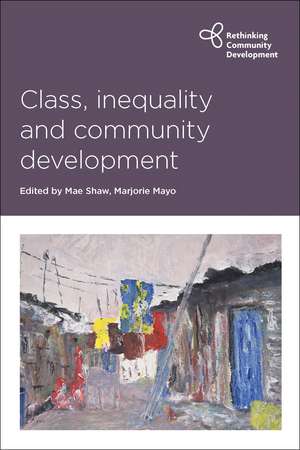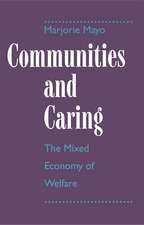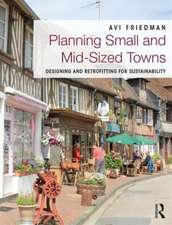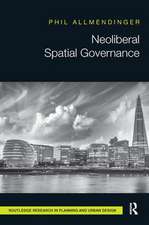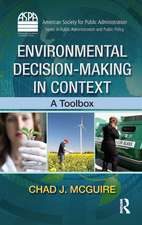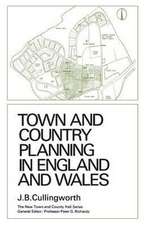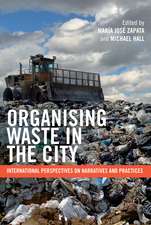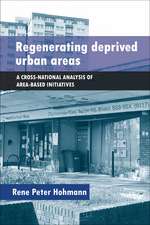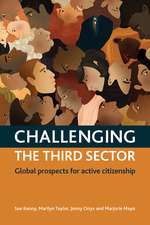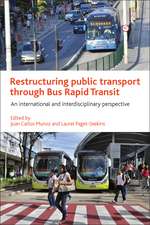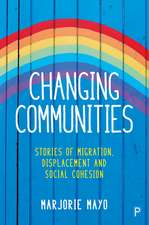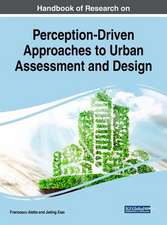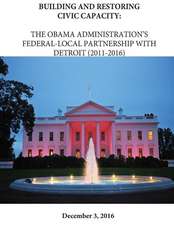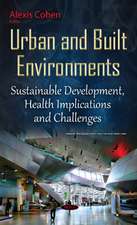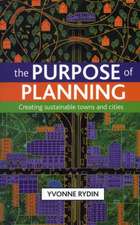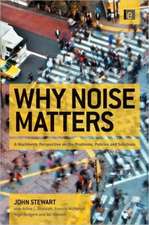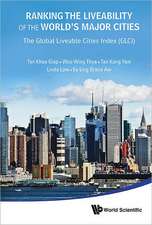Class, Inequality and Community Development: Rethinking Community Development
Autor Mae Shaw, Marjorie Mayoen Limba Engleză Paperback – 5 sep 2016
With inequality continuing to be an incredibly salient political and social issue, this book on the part it plays in community development could not be more timely. Arguing strenuously that class analysis should be central to any discussion of the potential benefits of community development, because otherwise development can simply mask the underlying causes of inequality, the book brings together contributors from a wide range of backgrounds to explore the ways that an understanding of class can offer a new path in the face of increasing social polarization.
| Toate formatele și edițiile | Preț | Express |
|---|---|---|
| Paperback (1) | 309.62 lei 22-36 zile | |
| Bristol University Press – 5 sep 2016 | 309.62 lei 22-36 zile | |
| Hardback (1) | 777.97 lei 43-57 zile | |
| Bristol University Press – 5 sep 2016 | 777.97 lei 43-57 zile |
Preț: 309.62 lei
Nou
Puncte Express: 464
Preț estimativ în valută:
59.24€ • 62.02$ • 49.02£
59.24€ • 62.02$ • 49.02£
Carte disponibilă
Livrare economică 17-31 martie
Preluare comenzi: 021 569.72.76
Specificații
ISBN-13: 9781447322467
ISBN-10: 1447322460
Pagini: 224
Dimensiuni: 159 x 235 x 18 mm
Greutate: 0.32 kg
Editura: Bristol University Press
Colecția Policy Press
Seria Rethinking Community Development
ISBN-10: 1447322460
Pagini: 224
Dimensiuni: 159 x 235 x 18 mm
Greutate: 0.32 kg
Editura: Bristol University Press
Colecția Policy Press
Seria Rethinking Community Development
Notă biografică
Mae Shaw is a senior lecturer in community education at the University of Edinburgh, Scotland. Marjorie Mayo is professor emeritus of community development at Goldsmiths, University of London.
Cuprins
1. Introduction ~ The Editors;
Section 1: Contested concepts of class and their applications in policies and practices, past and present;
2. Competing concepts of social class: implications and applications ~ Frances Fox Piven and Lorraine C. Minnite;
3. Community development in the UK: Whatever happened to class? ~ Gary Craig;
Section 2: Class, inequality and community development policies and practices in international contexts;
4. The impact of gender, race and class on women’s political participation in post-apartheid South Africa ~ Janine Hicks and S’thembiso Lindelihle Myeni;
5. Building global alliances locally and globally ~ Kate Newman;
6. Working-class movements and ecology ~ Stefania Barca and Emanuele Leonardi;
7. Rural-urban alliances for community development through land reform from below ~ Maria Elena Martinez-Torres and Frederico Daia Firmiano;
8. Class, caste and community development ~ Mohd Shahid and Manish Jha;
9. Community development: (un)fulfilled hopes for social equality in Poland ~ Anna Bilon, Ewa Kurantowicz and Kamikla Rudnicka; 1
0. When community organising moves into government: Recent experience in Bolivia ~ Mike Geddes;
11. Community development and class in the context of an East Asian productivist welfare regime ~ KK Fung;
Section 3: Exploring the implications and identifying potential ways forward;
12. Race, class and green jobs ~ Sekou Franklin;
13. Making critical alliances: Community unionism ~ Pilgrim Tucker;
14. Community organising for social change: identifying the spaces for class politics ~ Marilyn Taylor, Ruth Townsley and Mandy Wilson;
15. Popular education and community development: Sharing learning ~ Peter Taylor;
16. Conclusions: exploring the implications for theory and practice ~ The editors.
Section 1: Contested concepts of class and their applications in policies and practices, past and present;
2. Competing concepts of social class: implications and applications ~ Frances Fox Piven and Lorraine C. Minnite;
3. Community development in the UK: Whatever happened to class? ~ Gary Craig;
Section 2: Class, inequality and community development policies and practices in international contexts;
4. The impact of gender, race and class on women’s political participation in post-apartheid South Africa ~ Janine Hicks and S’thembiso Lindelihle Myeni;
5. Building global alliances locally and globally ~ Kate Newman;
6. Working-class movements and ecology ~ Stefania Barca and Emanuele Leonardi;
7. Rural-urban alliances for community development through land reform from below ~ Maria Elena Martinez-Torres and Frederico Daia Firmiano;
8. Class, caste and community development ~ Mohd Shahid and Manish Jha;
9. Community development: (un)fulfilled hopes for social equality in Poland ~ Anna Bilon, Ewa Kurantowicz and Kamikla Rudnicka; 1
0. When community organising moves into government: Recent experience in Bolivia ~ Mike Geddes;
11. Community development and class in the context of an East Asian productivist welfare regime ~ KK Fung;
Section 3: Exploring the implications and identifying potential ways forward;
12. Race, class and green jobs ~ Sekou Franklin;
13. Making critical alliances: Community unionism ~ Pilgrim Tucker;
14. Community organising for social change: identifying the spaces for class politics ~ Marilyn Taylor, Ruth Townsley and Mandy Wilson;
15. Popular education and community development: Sharing learning ~ Peter Taylor;
16. Conclusions: exploring the implications for theory and practice ~ The editors.
Recenzii
“Although community work/development is no longer in the repertoire of most social workers, this book reminds us what the possibilities once were and perhaps could be again.”
“Quite simply a wonderful book about the challenge of rethinking what community development can become in the twenty-first century. . .deserves to be read widely.”
“This wonderful new book is a welcomed contribution to the literature which relates community development to social class and public policy—with special emphasis on inequalities in society.”
“This coherent and timely collection makes the convincing case for social class to be moved from the sidelines back to the center of theory and practice in contemporary community development.”
